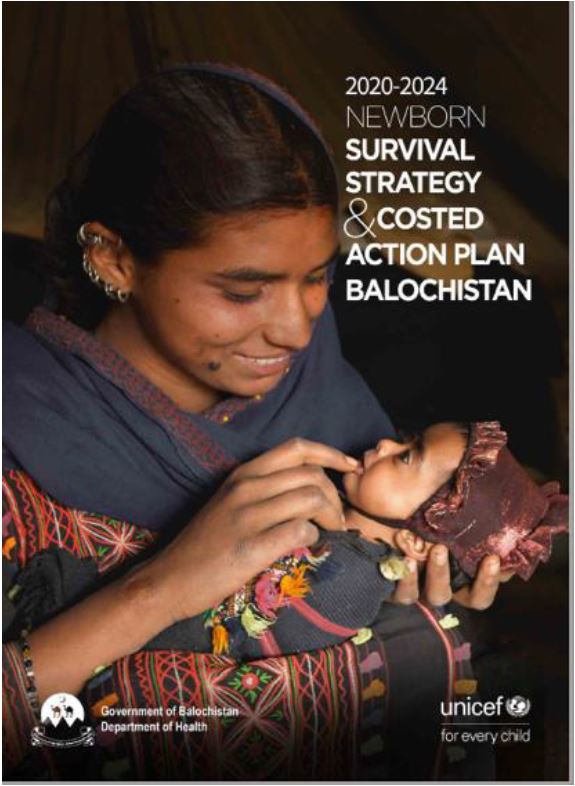Background
For the last few decades, Pakistan has struggled to decrease its neonatal mortality rate (NMR), which at present stands at 42 per 1,000 live births, with clear disparities across urban vs rural, provincial and wealth quintiles.
In the Balochistan province, Maternal and Newborn Health (MNCH) indicators remain poor. The province lags other provinces of Pakistan with only (38%) of births being assisted by skilled birth attendants. On the contrary, a higher proportion of births (52%) were attended by traditional birth attendants in Balochistan than in the other provinces (27% or below).
Newborn Survival Strategy and Costed Action Plan 2020-2024
Keeping in view the dire need, the Department of Health Balochistan has launched Newborn Survival Strategy and Costed Action Plan 2020-2024 to save babies in the country. The strategy has been specially developed by the Department of Health and MNCH Program Balochistan with UNICEF support to help improve the situation and attain the Sustainable Development Goal 3, relevant to MNCH.
As a preliminary step to guide the development of the strategy, a situation analysis was undertaken to review the existing global commitments, recommendations, guidelines and good practices for newborn care. It also took into consideration the existing national and provincial policies, strategies and programme documents of selected countries in the region. Following the situation analysis, a provincial workshop was organized in April 2019 at the directorate of health to share the findings and seek inputs from various stakeholders.
The strategy is specifically tailored and aligned with the context and circumstances of Balochistan. It identifies comprehensive actions to ensure an enabling environment and key strategic areas focusing on newborn health. Simultaneously, this strategy also suggests and provides a roadmap for the department of health, line departments, development partners, academia and NGOs to operate through a collective action and synergized efforts to address preventable morbidity and mortalities in the province.
It also includes a costed action plan, which is based on current evidence, global, regional and local best practices in conjunction with insights from stakeholders, service delivery staff, program managers and policy makers.
Key Areas of Recommendations
The Newborn Survival Strategy 2020-24 identifies gaps and suggests recommendations in the following areas:
- Defining key preventive, promotive and curative newborn care approaches at different levels;
- Adopting relevant guidelines and standards;
- Skills development and retention of human resources;
- Incorporating newborn health care facility, staff and supply costs into annual provincial and district budgets;
- Providing a platform to bring together all stakeholders working in newborn care in the provinces and routing their commitment, efforts, resources and support in a coherent direction under the guidance of the Balochistan department of health.
Key Outcomes
The strategy is structured around three main outcomes:
- Creation of sustained, evidence-informed, conducive action to curb neonatal mortality through improved policy making and strengthened governance & coordination of health systems;
- Ensure the access to quality newborn health care services at scale, and;
- Creation of sustained capacity-building to keep up with the increasing demand of newborn care among the communities and families.
The Government of Pakistan and Balochistan provincial administration are highly committed to improve the quality of MNCH services to the mothers and children of the province.
The strategy was launched in the provincial capital of Quetta on 11 February 2020 at an event where all key stakeholders were in attendance.
